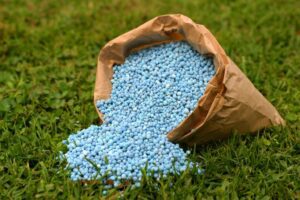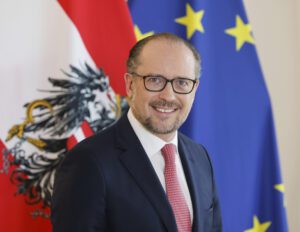
The Government of Canada has offered to provide a loan of up to CAD 120 million to support the economic stability and development of Ukraine.
“Today, the Honourable Harjit S. Sajjan, Minister of International Development and Minister responsible for the Pacific Economic Development Agency of Canada, and the Honourable Mélanie Joly, Minister of Foreign Affairs, announced that Canada has offered to provide a loan of up to CAD 120 million to the Government of Ukraine to support the country’s economic resilience and governance reforms,” the Government of Canada said in a statement on Friday.
In addition, Canada has also offered to provide a technical assistance grant of up to CAD 6 million to support the implementation of the loan. Canadian and Ukrainian officials are already meeting to discuss the potential terms of the loan and a timeline for its implementation.
“Ukrainians can always count on Canada to be there for them when needed. By working together, we can strengthen the economy and help advance governance reforms. I authorized this proposed loan to support Ukraine’s ability to respond to its population’s needs amid Russia’s aggressive actions. This is just one step in helping build a secure future for Ukrainians, and I will continue to look at ways to support Ukraine,” Sajjan said.
The Government of Canada also said that in 2014 and 2015, the country provided a CAD 400 million (CAD 200 million per year) loan to Ukraine to the then new government to support its economic recovery and development goals, and this loan was fully repaid with interest as scheduled in 2020.
The new assistance is provided under the CAD 620 million sovereign loan program approved in 2018. According to it, the maximum loan term is up to ten years. Principal and interest payments must be made at least once a year, with a possible grace period in certain circumstances, and a fixed rate of interest equal to the cost of the Canadian government loan.
The total amount of loans to the country under this program cannot exceed CAD 120 million.
On January 20, the National Bank of Ukraine said that due to the military threat from Russia, Ukraine’s eurobond rates rose to double-digit stress levels, and the country temporarily lost access to the market for external commercial loans. According to the NBU, in such conditions, the role of financing from international financial organizations such as the IMF and the World Bank, as well as partner countries, increases.

European Commissioner for Neighbourhood and Enlargement Olivér Várhelyi will visit Kyiv on January 26 and 27, the European Commission told Interfax-Ukraine.
The European Commission said the commissioner will visit Ukraine next week, January 26 and 27, the exact schedule is still being prepared.
The European Commission believes that this visit will provide an opportunity to send a strong signal of support for the sovereignty and territorial integrity of Ukraine, EU engagement in promoting resilience to hybrid threats, as well as sustainable economic growth through the Economic and Investment Plan and further integration with the EU based on the Association Agreement.

The average level of provision of agricultural enterprises with mineral fertilizers for spring-summer field work in Ukraine as of January 20, 2022 is 11%, according to a presentation on the website of the Ministry of Agrarian Policy and Food.
According to it, data on fertilizer reserves of 11 regions – Vinnytsia, Dnipropetrovsk, Zakarpattia, Kyiv, Lviv, Sumy, Kharkiv, Kherson, Cherkasy, Chernivtsi and Chernihiv regions – have not yet been provided to the ministry.
Zaporizhia region is the most provided for the upcoming sowing season (57% of the need), followed by Khmelnytsky (26%), Zhytomyr (22%), Donetsk (21%), Kirovohrad (20%), Ternopil (15%), Mykolaiv and Ivano-Frankivsk (13% each), Poltava (12%), Volyn (10%), Odesa (7%), Rivne (6%) and Luhansk (1%) regions.

The housing price index in Ukraine in the fourth quarter of 2021 amounted to 117.7% compared to the same period in 2020, the State Statistics Service reported.
At the same time, according to its data, prices in the primary market increased by 16.7%. Three-room apartments rose in price most of all – by 18.4%, least of all – one-room apartments (by 16%).
According to the State Statistics Service, in the secondary market, housing has risen in price by 18.4% over the year. One-room apartments increased the least in price – 17.9%, three-room apartments – the most (19.2%).
Compared to the third quarter of 2021, housing prices increased by 3.4%, in the primary market by 3.8%, in the secondary market by 3.1%.

Austrian Foreign Minister Alexander Schallenberg plans to visit Ukraine on February 7-8 to show a “clear signal of support,” OE24 has reported.
“In the midst of the aggravation of the Ukrainian crisis, Foreign Minister Alexander Schallenberg (ÖVP) wants to visit the Eastern European country in early February (February 7-8),” the OE24 article says.
It is indicated that Schallenberg said this on Thursday at an informal meeting of EU foreign ministers in Brest, France. The Austrian Foreign Minister plans to pay a visit together with his colleagues from Slovakia and the Czech Republic.
“Yes to dialogue, but certainly not the threat of tanks and missiles changing borders in the 21st century,” Schallenberg said, adding that Austria has always “taken a clear position” on Ukraine.

Export of Ukrainian agricultural foods to the countries of the European Union in 2021 grew in monetary terms by 33% compared to 2020, to $8.3 billion due to an increase in the supply of agricultural products to foreign markets and its rise in price, according to a posting on the website of the Ukrainian Agribusiness Club (UCAB) on Wednesday.
According to UCAB, the peak months for the export of agricultural products from Ukraine to the EU were December ($1 billion), October ($0.98 billion) and November ($0.97 billion). The lowest export rates were recorded in July ($0.48 billion), April ($0.49 billion) and March ($0.5 billion).
In 2021, nine quotas for duty-free exports to the EU have also been fully used, namely for honey, cereals, flour, starch, processed starch, processed tomatoes, grape and apple juice, chicken eggs, poultry meat (parts), and processed cereal products.
“Compared to 2020, the situation has changed with the use of quotas for the supply of sugar and corn to the EU, or rather with their incomplete use. As for sugar, last year the quota was used by 87% due to a shortage in the domestic market of this product. At the same time, the quota for corn was used by only 5% due to increased demand for this type of grain and the availability of more attractive export channels for Ukrainian farmers,” UCAB said, quoting its analyst Svitlana Lytvyn.
In addition, UCAB said that as of January 18, 2022, Ukraine has fully used the first-quarter quotas for the export of eggs and poultry meat to the EU, as well as the annual quota for the export of honey.
As reported, Ukraine in 2020, within the framework of a free trade area (FTA) agreement with the EU, fully used 11 quotas for duty-free export of agricultural products, while in 2019 there were 12 of them.